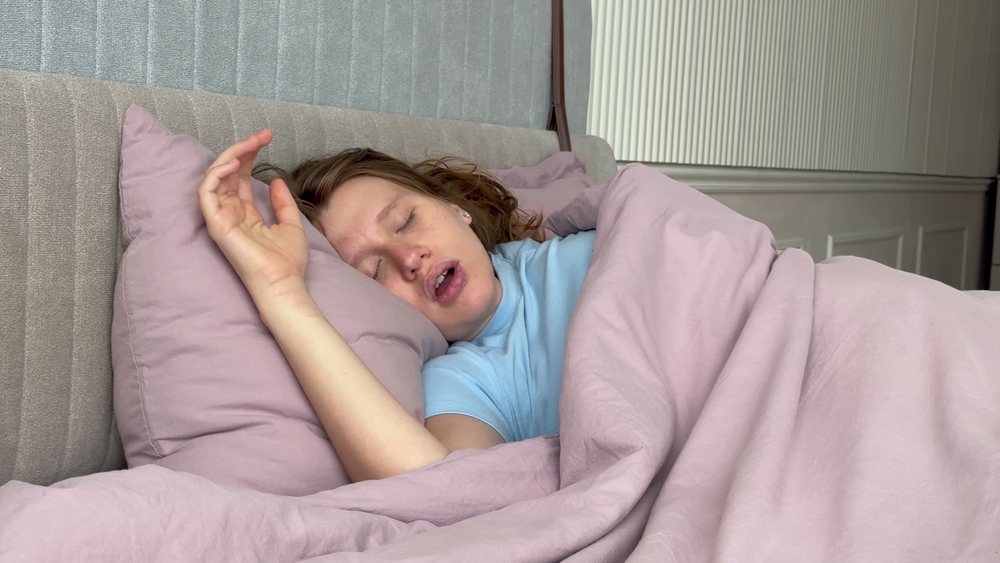Experiencing occasional snoring is common and often harmless. However, if you suffer from sleep apnea—a condition where breathing repeatedly stops and starts during sleep—the effects can be far-reaching. Sleep apnea not only disrupts your sleep but can also affect your overall health and well-being, impacting those around you as well. Addressing sleep apnea promptly and effectively is essential for restoring restful sleep and improving your quality of life.
Optimizing your sleep environment
Achieving quality sleep requires attention to various factors, including your sleep environment, bedroom comfort, and sleep posture. A well-designed sleep environment can make a significant difference in how well you rest. Here are some key considerations:
- Bedroom Comfort: Ensure your mattress and pillows provide adequate support. A mattress that is too soft or too firm can affect sleep quality. Choose pillows that support proper alignment of your head and neck.
- Room Ambiance: Create a soothing atmosphere in your bedroom. Keep the room cool, dark, and quiet to promote relaxation and minimize disruptions. Consider using white noise machines or earplugs if necessary.
- Sleep Posture: The position in which you sleep can influence snoring and sleep apnea. For example, sleeping on your back may exacerbate snoring and obstructive sleep apnea. Experiment with different sleep positions to find what works best for you.
If snoring is affecting your sleep quality, it’s important to understand the root cause. Snoring can be a sign of an underlying condition such as sleep apnea, which may require medical intervention.
Exploring sleep apnea interventions
When it comes to managing sleep apnea, a multi-faceted approach often yields the best results. Initial treatment options may include:
- Lifestyle Modifications: Making certain lifestyle changes can help alleviate sleep apnea symptoms. Losing weight, avoiding alcohol and sedatives, and quitting smoking can reduce airway inflammation and improve breathing.
- Positive Airway Pressure (PAP) Therapy: One of the most effective treatments for sleep apnea is Continuous Positive Airway Pressure (CPAP) therapy. This involves wearing a mask connected to a machine that provides a constant stream of air to keep your airways open during sleep.
- Oral Appliances: For some individuals, a custom-fitted oral appliance can be a viable alternative to CPAP. These devices, worn during sleep, reposition the lower jaw and tongue to prevent airway obstruction.
If these conservative measures are insufficient, more advanced treatments may be necessary. Surgical options can provide lasting relief by addressing structural issues that contribute to sleep apnea.
Septoplasty for nasal obstruction
In cases where snoring or airway obstruction is caused by a deviated or malformed nasal septum, septoplasty may be a suitable solution. This surgical procedure aims to correct the alignment of the nasal septum by repositioning or removing obstructive bone or cartilage. By improving nasal airflow, septoplasty can reduce snoring and enhance overall breathing.
- Procedure Overview: During septoplasty, the surgeon makes an incision inside the nostril to access the septum. The deviated portions of the septum are then adjusted or removed to improve airflow.
- Recovery and Results: Recovery from septoplasty typically involves a short period of nasal congestion and discomfort. Most patients experience significant improvements in nasal breathing and a reduction in snoring.
Uvulopalatopharyngoplasty (UPPP) for severe cases
For individuals with severe snoring or obstructive sleep apnea, Uvulopalatopharyngoplasty (UPPP) offers a more invasive approach. UPPP involves the removal of excess tissue from the throat, including parts of the uvula, the sides of the throat, and, if necessary, the tonsils and adenoids.
- Procedure Details: During UPPP, the surgeon removes obstructive tissue to widen the airway and reduce the likelihood of airway collapse during sleep. This can help alleviate snoring and improve breathing.
- Post-Surgery Care: After UPPP, patients may experience some throat pain and discomfort. Following post-operative care instructions and attending follow-up appointments are crucial for optimal recovery and results.
Seeking treatment for sleep apnea
Managing sleep apnea effectively requires a comprehensive evaluation and tailored treatment plan. Untreated sleep apnea can lead to serious health complications, including cardiovascular issues, high blood pressure, and diabetes. Early diagnosis and intervention are crucial for preventing these adverse effects.
If you suspect you have sleep apnea or if your current treatment isn’t providing relief, consult with an Ear, Nose, and Throat specialist. They can help determine the most appropriate treatment options for your condition, including potential surgical interventions.
For more information on managing sleep apnea and exploring treatment options, find an ENT specialist near you.



